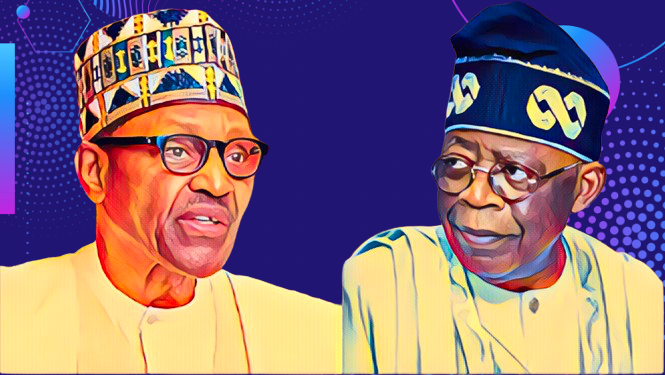In Nigeria, the economic landscape has undergone a significant transformation, particularly following President Bola Ahmed Tinubu’s bold steps to withdraw petrol subsidies and unify the foreign exchange market. These measures, while aimed at revitalizing the economy, have stirred debates about the intersection of governance, economic policy, and political strategy.
The backdrop of these discussions is an admission by former President Muhammadu Buhari that his administration delayed the removal of fuel subsidies to enhance the All Progressives Congress (APC)’s electoral chances in the 2023 elections. This revelation has spotlighted the complex dance between political considerations and economic realities in Nigeria’s policy-making processes.
President Tinubu’s inauguration day announcement to end the decades-long fuel subsidy regime was a move justified by the need to address deficit budgetary concerns. However, this, along with the forex market unification, has exacerbated economic challenges, including rising poverty, inflation, and food insecurity, sparking widespread protests across the nation.
The economic situation has seen the naira plummet to record lows against major currencies, with the International Monetary Fund (IMF) projecting further depreciation and a sharp inflation increase. Despite the economic rationale behind subsidy removal, experts argue that the absence of adequate political will and institutional support hinders the effectiveness of such policies, pushing more Nigerians below the poverty line.
The controversy surrounding Buhari’s delay in subsidy removal has ignited discussions on the prioritization of national interest over political gains. Critics and socio-political organizations have voiced concerns over the implications of such decisions, suggesting that national development was compromised for electoral success.
The dilemma faced by Buhari’s administration highlights a recurring theme in Nigerian politics: the impact of economic policies shaped by political expediency. With the country grappling with the aftermath of these decisions, the focus shifts to how President Tinubu navigates the inherited challenges. Policy analysts emphasize that while political maneuvering for electoral advantage is not unique to Nigeria, the prioritization of the nation’s well-being in policy formulation is crucial.
The Tinubu administration’s approach to managing the subsidy removal fallout is under scrutiny, with experts advising against making economic decisions purely for political gains. The aftermath of such policies, they argue, could have lasting negative impacts on the nation’s economic health and social fabric.
Legal and policy experts call for a balanced approach that considers the long-term benefits of economic decisions over short-term political victories. The unfolding scenario in Nigeria serves as a reminder of the intricate balance required between politics and economics, urging leaders to make sacrifices that prioritize good governance and the nation’s future over immediate political success.
As Nigeria navigates these turbulent economic waters, the lessons learned from the interplay between political decisions and economic policies will undoubtedly shape the country’s path toward sustainable development and stability. The ongoing discourse underscores the need for a governance model that harmonizes political strategy with economic imperatives, ensuring that the pursuit of electoral success does not compromise the nation’s broader developmental goals.



